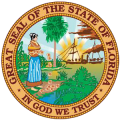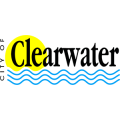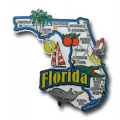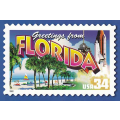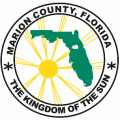The past decade has seen a steady increase in the quantity and quality of Florida's nursing programs. Nursing is a popular career option in the state, with strong employment prospects and competitive pay. It is important for aspiring nurses to understand the different nursing roles, certifications required, and education programs available.
Nursing assistant
Florida
We've organized a comprehensive list of Florida nursing schools. Below you'll find information on specific nursing programs such as LPN certificates and ADN, BSN, and MSN degrees. You'll also find a profile of nursing education and careers in each major Florida city.
Florida nursing programs and careers
City-specific information
Nursing can be an extremely rewarding and lucrative career, and there are plenty of job opportunities in the field in the area around Palm Bay, Melbourne, and Titusville, Florida. While there are opportunities for nurses at every level, before deciding on a nursing program, it is important to consider which career path is right for you.
Certified nursing assistant (CNA)
Florida’s nurses provide a high level of patient care, taking on many of the responsibilities traditionally entrusted to doctors. This makes nurses essential in today’s healthcare system. In Gainesville, there is consistently high demand for nurses at all levels. Below, you can learn more about different nursing roles in the area.
Certified nursing assistant (CNA)
Nurses play an essential part in our healthcare system, providing a high level of patient care and taking on many of the responsibilities traditionally entrusted to doctors. With an expanding healthcare system, the nursing profession is projected to have steady job growth in the years ahead. In Fort Lauderdale, there is a demand for nurses at all levels. Below, you can read brief descriptions of the main types of nursing jobs in the area.
Certified nursing assistant (CNA)
In Florida and across the country, nurses play a critical role in providing care for patients, taking on many of the responsibilities traditionally entrusted to doctors. With the challenges presented by an aging population, growing numbers of lifestyle diseases, and an expanding healthcare system, the medical community is relying more and more on nurses. In the Deltona-Daytona Beach-Ormond Beach area, there is a demand for nurses at all levels. Below you can read brief descriptions of the main types of nursing jobs in the area.
The role nurses play in today’s healthcare system is expanding, and nurses at all levels are in high demand in the Clearwater area. There are several routes you can take to start your nursing career. Below you’ll find job descriptions for some of the main types of nurses.
Certified nursing assistant (CNA)
Nurses are in high demand in the Cape Coral / Fort Myers area and all across the state of Florida. There are several distinct routes you can take to launch a career in nursing. Below, you can learn about the main types of nurses and their different responsibilities.
Certified nursing assistant (CNA)
Nursing school can be an expensive endeavor, regardless of the school or program you choose. In addition to the costs of tuition and registration, there are additional expenses such as textbooks and school supplies, room and board, and general living expenses. In order to make an informed decision about which school to attend, it is important to factor all of these expenses into your budget.
Nurses can pursue pre-licensure programs at either public or private schools, each of which offers unique advantages. Although private schools tend to be more expensive, they are generally regarded as more selective and academically rigorous. Private schools tend to have smaller class sizes, making it easier for students to get to know their professors and seek individual help. They also tend to have smaller campuses with fewer students in general, making for more intimate, tightly-knit communities.
Aspiring nurses can choose to complete pre-licensure programs at either public or private schools. While both options have their merits, public colleges and universities are subsidized by the government, making them affordable options that are ideal for students with financial concerns. Public schools often have more flexible course offerings as well, accommodating students who have jobs and extracurricular commitments, and making it easier to earn a degree on a part-time basis.
Listed below are affordable nursing programs in Ocala, Florida, that can prepare you for a fulfilling career.
College of Central Florida – Ocala

